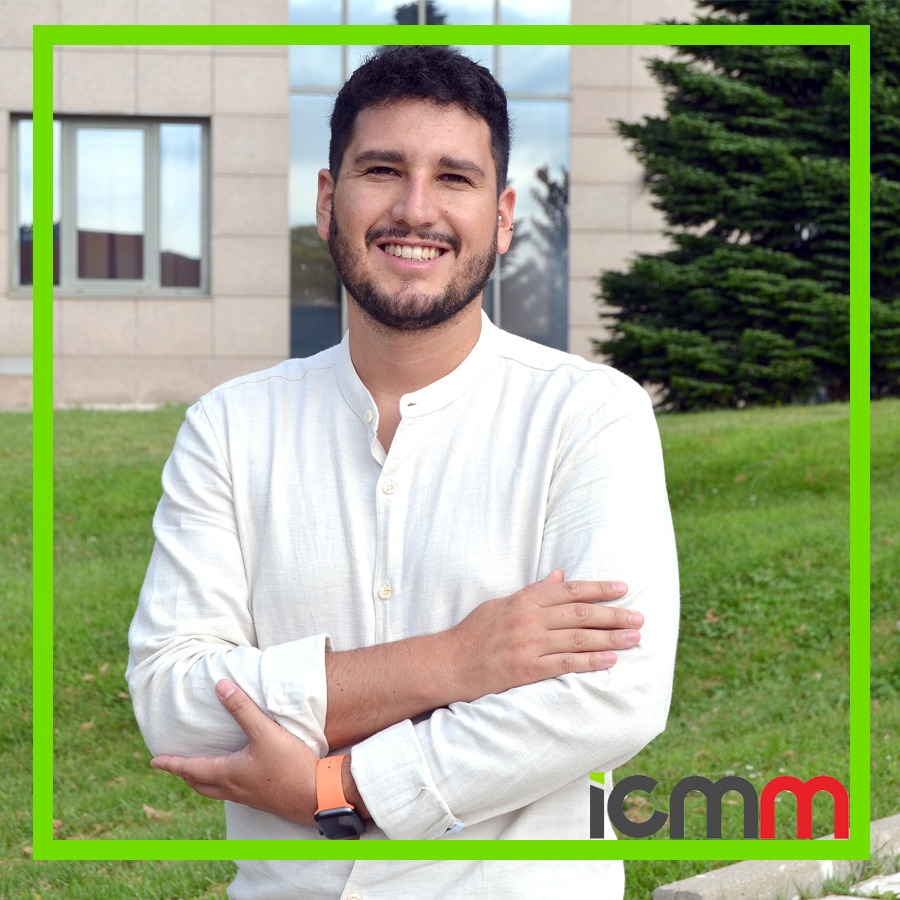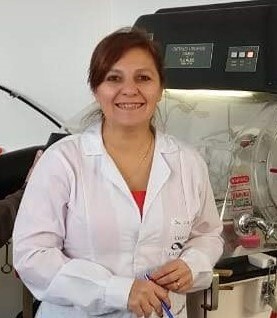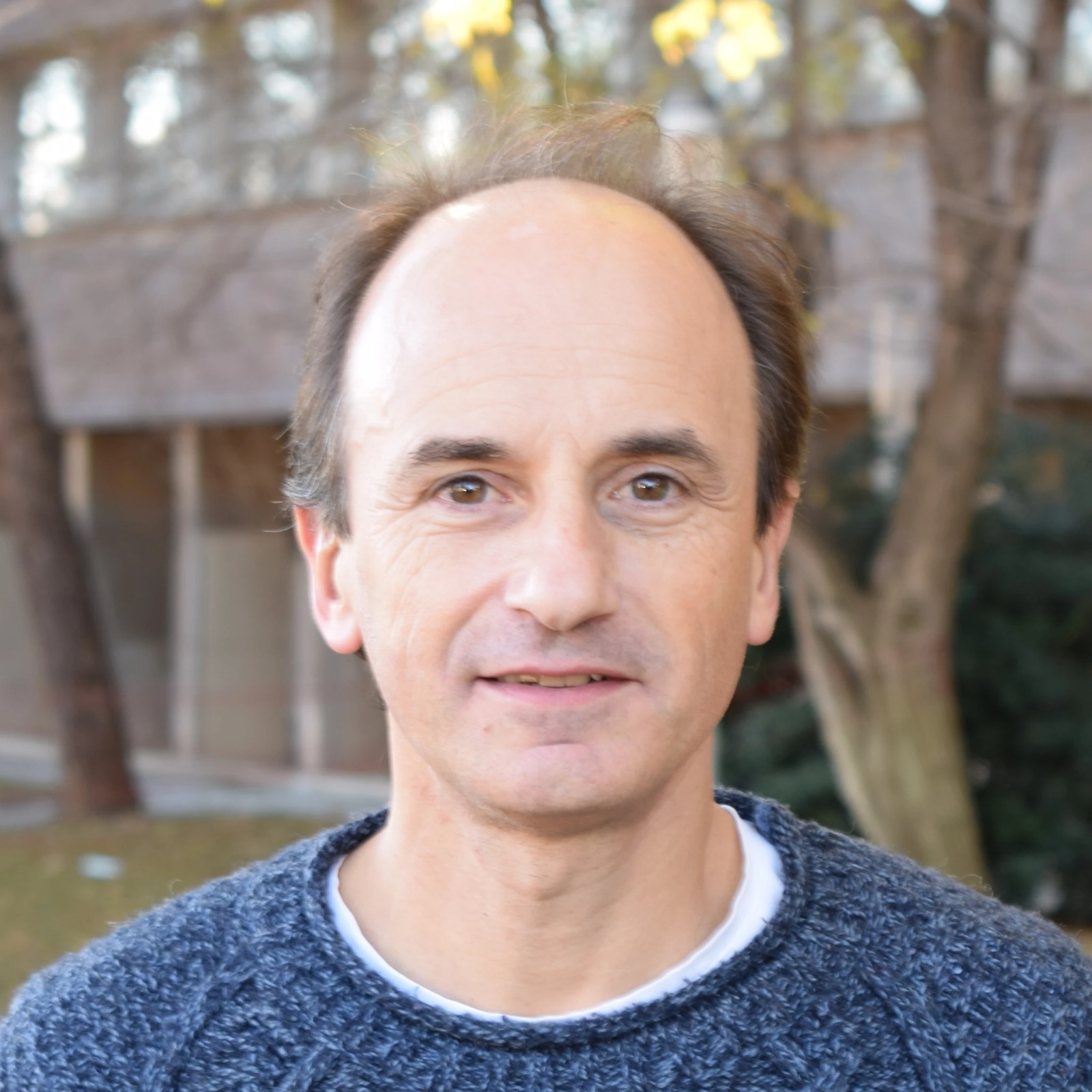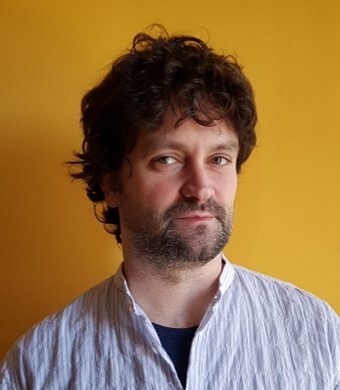12º International Conference On Fine Particle Magnetism 2025 – ICFPM 2025
Speakers
Invited speakers
Dr. Álvaro Gallo Córdova
Materials for Medicine and Biotechnology Group of the Institute of Materials Science of Madrid (ICMM-CSIC)

Dr. Álvaro Gallo Córdova
Materials for Medicine and Biotechnology Group of the Institute of Materials Science of Madrid (ICMM-CSIC)
Dr. Álvaro Gallo Córdova is a senior postdoctoral researcher at the Materials for Medicine and Biotechnology Group of the Institute of Materials Science of Madrid (ICMM-CSIC). He obtained his degree in Chemical Engineering in 2014 from the Universidad San Francisco de Quito (Ecuador) and his PhD in Advanced Materials and Nanotechnology in 2021 from the Universidad Autónoma de Madrid (Spain), where his doctoral work on iron oxide nanoreactors for environmental remediation received the Extraordinary Doctorate Prize and two recognitions from Madrid City Council.
His research focuses on magnetic nanocatalysis, exploring how magnetic nanoparticles can drive transformations through localized heating. While magnetic hyperthermia has traditionally been studied in oncology, Dr. Gallo Córdova is focused on redirecting its application towards environmental and energy contexts, including advanced oxidation processes for water treatment, catalytic upgrading of biomass into biofuels, and sustainable hydrogen generation.
His contributions have been recognised with distinctions such as the Mares Circulares Prize (Coca-Cola Foundation, 2022) for environmental innovation and the Young Researcher Award from the European Magnetism Association (2024) for bridging the gap between fundamental magnetism with industrial applications.
Dr. Prof. Fanny Béron
University of Campinas (UNICAMP), Brazil

Dr. Prof. Fanny Béron
University of Campinas (UNICAMP), Brazil
Prof. Fanny Béron is associate professor in physics and engineering physics at the University of Campinas (UNICAMP), in Brazil, in which she completed her postdoc in 2012. She obtained her PhD in Engineering Physics in 2008 from École Polytechnique de Montréal (Canada). Her research interests encompass the development of novel magnetic nanostructures, mainly nanowires, focusing on spintronics and nanoelectronics applications. She is acting as Editor of the IEEE Magnetics Letter journal. She received the Carolina Nemes Award in 2018, for early-career female physicist in Brazil, and the Zeferino Vaz Academic Recognition Award in 2020, for her excellence in academic, research, and outreach activities.
Dr. Jeyadevan Balachandran
Tohoku University, Japan

Dr. Jeyadevan Balachandran
Tohoku University, Japan
Jeyadevan Balachandran graduated from Moratuwa University in 1980 (Sri Lanka), obtained an M. Eng. Degree (Moratuwa University, Sri Lanka), and a Ph. D. (Tohoku University, Japan). Worked as a researcher (CISIR, Sri Lanka), Research Associate (Tohoku University), Lecturer (Akita University), Associate Professor (Tohoku University), and Professor (Tohoku University). Then, worked as a Professor at the Department of Materials Science at The University of Shiga Prefecture (Japan) till retirement (March 2022). At present, working as a specially appointed Professor at the Graduate School of Environmental Studies, Tohoku University (Japan)
Main fields of research: Synthesis of magnetic, plasmonic, conducting, photocatalytic nanostructures using aqueous and non-aqueous techniques and their application in engineering fields. Specialize in developing polyol- and alcohol-based techniques to synthesize size, size distribution, and morphology-controlled nanostructures. Developed the designed synthesis technique for alloy functional nanostructures, such as nanoparticles and nanowires for biosensing and therapeutics, transparent conductive films, and fuel cell electrode applications.
Published over 100 peer-reviewed articles on the synthesis of oxide, metal, and alloy nanostructures and their physical properties. Collaborated with National Institute of Materials Science, Nagoya Institute of Technology, and Doshisha University locally and Université Paris Cité (Paris), National Institute of Technology (Tiruchirappalli, India), Institute of Materials Science (Madrid, Spain), and others internationally.
Title of the talk: Designed Synthesis of Functional Alloy Nanostructures Using Non-aqueous Techniques
Dr. Hamid Kachkachi
Université de Perpignan (France)

Dr. Hamid Kachkachi
Université de Perpignan (France)
Dr. Hamid Kachkachi
Perpignan University, France
Hamid Kachkachi received his PhD in Mathematical Physics in 1994 from U. Bordeaux I (lab. Theoeretcial Physics), after a few short-term posts, he became Assistant Professor in 1997 at U. Versailles (Lab. Magnetism and Optics), then Associate Professor in 2003. In 2008, he was appointed as Full Professor at U. Perpignan, where he built the research group Nanoscaled Spin Systems. His research today focuses on Electrodynamics of hybrid nanostructures, Nanomagnetism, Systems with coupled charge and spin degrees of freedom, e.g. magnetic semiconductors.
Prof. Karine Chesnel
Brigham Young University, USA

Prof. Karine Chesnel
Brigham Young University, USA
Prof. Karine Chesnel is a professor in the department of Physics and Astronomy at Brigham Young University (BYU), in Utah, USA. She graduated with a double BS in Physics and in Chemistry from the Ecole Normale Superieure of Lyon, France, and a PhD in Material Sciences from University Joseph Fourier, Grenoble, France in 2002. She then completed a Postdoc at the Lawrence Berkeley National Laboratory, in California, USA, and a visiting year at the High Magnetic Field Laboratory in Toulouse, France. In 2008, she joined the faculty at the Physics department at BYU. In this position, she has mentored over a hundred undergraduate and graduate students in research projects. Her research interests are focusing on nanomagnetism in thin films and nanoparticles, including magnetic domain memory, superparamagnetism, dynamics of magnetic fluctuations. She carries out her investigations using x-ray synchrotron spectroscopy techniques, such as resonant magnetic scattering, dichroic ptychography, and photon correlation spectroscopy. She is serving on the editorial board of the IEEE Magnetics Letters journal, Nanomaterials and other journals.
Dr. Sara Laureti
Institute of Structure of Matter (CNR), Italy

Dr. Sara Laureti
Institute of Structure of Matter (CNR), Italy
Sara Laureti is a researcher at the Institute of Structure of Matter (CNR, Italy), specialized in nanostructured magnetic materials and their advanced applications. She got the PhD in Materials Science from the University of Rome “La Sapienza” and a summa cum laude degree in Chemistry. Since the beginning of her scientific career her work was devoted to the study of magnetic materials modulated at the nanoscale with a particular focus on topics such as surface and interface effects in thin films and nanoparticles, spin valve structures and magnetoresistive devices (~ 50 scientific publications, H-index=20). Her international experience includes collaborations and leadership roles in national and international research projects, including serving as Principal Investigator for the Italian FIRB project on magnetic heterostructures. She has actively contributed to EU-funded initiatives and participated in high-profile conferences and workshops as co-chair and member of organizing committees. She is also deeply committed to science communication. Her editorial contributions, including volumes and special issues, further support the interdisciplinary exchange of scientific knowledge.
Dr. Gabriel Lavorato
National University of La Plata, Argentina

Dr. Gabriel Lavorato
National University of La Plata, Argentina
Gabriel Lavorato obtained his Engineering Sciences PhD degree in 2016 at the Balseiro Institute, National University of Cuyo, Argentina. Following a postdoctoral position at the Brazilian Center for Research in Physics and a Fulbright Visiting Scientist Scholarship at the University of South Florida, in 2018 he joined the National Scientific and Technical Research Council and National University of La Plata as Assistant Researcher. He has been awarded with the “Instituto Sábato” Prize 2018 for his contribution to the field of Materials Science and Technology in Argentina, and his current research is focused on the physical chemistry of metal oxide hybrid nanostructures and their technological applications.
Dr. Enio Lima Jr
Instituto de Nanociencias y Nanotecnologia, Bariloche, Argentina

Dr. Enio Lima Jr
Instituto de Nanociencias y Nanotecnologia, Bariloche, Argentina
Dr. Enio Lima Jr. earned a bachelor's (1999), master's (2000), and PhD (2003) in physics from the Federal University of Santa Catarina. Currently, he is an independent researcher at Instituto de Nanociencias y Nanotecnologia (INN) CNEA/CONICET, based in the Magnetic Resonance Laboratory at the Centro Atómico Bariloche-CNEA. His research focuses on nanomagnetism with a strong emphasis on the designed, fabrication, characterization and applications of magnetic nanoparticles. With extensive experience in the field, he contributes significantly to advancing our understanding of novel magnetic phenomena and new potential applications of designed nanoparticles.
Dr. Claudia Rodriguez Torres
Instituto de Física La Plata, Argentina

Dr. Claudia Rodriguez Torres
Instituto de Física La Plata, Argentina
Graduate in Physics from the Faculty of Exact Sciences at the National University of La Plata (UNLP) and PhD in Physics (FCE, UNLP) specializing in hard ferromagnets. Currently, she is a Principal
Investigator at CONICET and Full Professor in the Department of Physics at the Faculty of Exact Sciences, UNLP. She leads the Magnetism in Oxides (MagOx) group and the Thin Films Growth Laboratory at the Instituto de Física La Plata (IFLP). She is responsible for national and international scientific research projects. Her research focuses on solid-state physics, encompassing semiconductor physics, magnetism, and nanotechnology. Presently, her primary work centers on the development and design of novel materials for applications in spintronics, catalysis, and biotechnology. She is also the co-founder and shareholder of Magnolia Nanotech SA, a technology-based company dedicated to manufacturing and marketing microparticles for biomolecule purification.
Dr. Sofia Kantorovich
University of Vienna

Dr. Sofia Kantorovich
University of Vienna
Sofia Kantorovich received her Master’s Diploma in Applied Mathematics from Ural State University, Ekaterinburg, Russia, in 2003, and her PhD in the Physics of Magnetism from Ural State University and Lomonosov Moscow State University in 2004. Her doctoral research focused on theoretical approaches to many-body systems of self-assembling magnetic nanoparticles.
From 2004 to 2007, she worked as a postdoctoral researcher at the Max Planck Institute for Polymer Research in Mainz, Germany, where she was engaged in the fields of statistical physics and computer simulations of soft matter systems, including polymers and colloids. She then continued her research at the University of Stuttgart, first as a postdoc and later as a senior Humboldt Fellow at the Institute for Computational Physics. Her work there centred on developing coarse-grained models and simulation methods for magnetic colloidal systems and ferrofluids, contributing to a deeper understanding of dipolar interactions, self-assembly, and structural transitions.
In 2012, she moved to the University of Rome “La Sapienza”, where, in addition to studying dipolar systems, she worked on computational and theoretical models of DNA self-assembling duplexes.
In 2013, Dr Kantorovich was appointed Associate Professor at the University of Vienna, where she leads a research group in Computational Dipolar Soft Matter Physics. Her research focuses on magneto-responsive materials, such as magnetic elastomers and ferrogels—composite systems comprising magnetic particles embedded in elastic matrices. These materials exhibit tunable mechanical properties under external magnetic fields and hold promise for applications in soft robotics, sensing, and biomedical engineering.
Her approach combines theoretical modelling, continuum mechanics, and advanced simulations to understand how microscopic interactions influence macroscopic material behaviour. In this context, she has introduced novel concepts to describe anisotropy, plasticity, and magneto-mechanical coupling in soft magnetic systems.
Her current research seeks to integrate multi-scale simulations, statistical mechanics and machine learning for the in silico design of adaptive magnetic soft materials with programmable functionality.
Dr. Beatrice Muzzi
Institute of Chemistry of Organometallic Compounds (CNR)

Dr. Beatrice Muzzi
Institute of Chemistry of Organometallic Compounds (CNR)
Beatrice Muzzi graduated in Chemistry at the University of Florence in 2017 and obtained the PhD degree in Chemical and Pharmaceutical Science at the University of Siena in 2021. During her PhD, she spent six months at the Instituto de Nanociencia y Materiales de Aragón (INMA) in Zaragoza, Spain, acquiring experience with Advanced Electron Microscopies. After the PhD, she moved to Toulouse, France, and worked at the Institut national des sciences appliquées (INSA) as a post-doc, where she was mainly involved in the synthesis and advanced electron microscopy characterization of anisotropic magnetic nanoparticles. After one year, she returned to Florence, at the Institute of Chemistry of Organo-Metallic Compounds (ICCOM) of the Italian National Research Council (CNR), and she participated in various European and national projects, focused on the development of rare-earth free permanent magnets. At present she has a Fixed-term Researcher position at the same institute.
Her scientific interests are in the field of nanomagnetism, and particularly in the synthesis and characterization of the structural and magnetic properties of novel nanomaterials based on metal transition oxide or metal particles.
Dr. Simon Greaves
Tohoku University, Japan

Dr. Simon Greaves
Tohoku University, Japan
Simon Greaves received his B.Sc. and Ph.D degrees in physics at Salford University in 1989 and 1992, respectively. From 1993 to 1996 he carried out research into magnetic tape and other magnetic materials at the University of Wales, Bangor.
In 1996 he moved to the Research Institute of Electrical Communication (RIEC) at Tohoku University and began to work on spin valves and micromagnetic simulations. From 2000 to 2003 he was a staff engineer at Hoya Corporation, involved in the development of hard disk media products.
In 2003 he returned to Tohoku University to join the information storage systems group in RIEC. His research interests include: magnetic recording and signal processing, information storage devices, and spintronic devices for neuromorphic computing. He is an editor of IEEE Transactions in Magnetics, has been an organising committee member of the Intermag and TMRC conferences, and has served as an AdCom member of the IEEE Magnetics Society and as a director of the Magnetics Society of Japan.
Dr. Cristina Gomez Polo
Universidad Pública de Navarra, Spain

Dr. Cristina Gomez Polo
Universidad Pública de Navarra, Spain
Graduate and PhD in Materials Physics from the Complutense University of Madrid in 1988 and 1992, respectively. In 1995 she joined the Public University of Navarre (UPNA) as Associated Professor and became Full Professor in 2011. Her research activity focuses mainly on the magnetic properties and applications of nanostructured magnetic materials. In particular, her interest has focused in recent years on environmental applications and the use of magnetic nanoparticles and nanostructures in wastewater treatment processes (adsorption and photocatalysis). She is currently a member of the Technical Committee (TC) of the IEEE Magnetics Society and the Advisory Board of the Journal of Alloys and Compounds. She is responsible (research leader) of the research group “Physical properties and applications of materials” (Department of Sciences-INAMAT2, UPNA).
Dr. Alejandro G. Roca
Catalan Institute of Nanoscience and Nanotechnology (ICN2), Spain

Dr. Alejandro G. Roca
Catalan Institute of Nanoscience and Nanotechnology (ICN2), Spain
Dr. Alejandro G. Roca is a Senior Researcher at the Catalan Institute of Nanoscience and Nanotechnology (ICN2) in Barcelona (Spain) from the ma. He has developed his scientific career in different research institutions from Spain (ICMM, INA-UNIZAR and ICMA), United Kingdom (University of York) and Japan (Tohoku University). His expertise spans two research lines related with magnetic iron oxide-based nanoparticles. i) Development of novel synthetic approaches for the growth of magnetic-based nanoparticles for different applications. His target materials range from hybrid heterostructures to anisotropic magnetic nanoparticles like nanocubes or nanorods, with direction-dependent properties. ii) Study of the magnetism of magnetic-based nanostructures. He combines different lab scale techniques with synchrotron/neutron techniques to unveil the complete knowledge of the structure and magnetism of magnetic-based nanoparticles. Dr. Roca has published 57 publications (h-index=30) with more than 5500 citations during his career and edited 2 books for RSC and Springer Nature.
Prof. Dr. Makis Angelakeris
Aristotle University of Thessaloniki. Greece.

Prof. Dr. Makis Angelakeris
Aristotle University of Thessaloniki. Greece.
Prof. Dr. Makis Angelakeris is a professor at the School of Physics at the Aristotle University of Thessaloniki. He is co-ordinating MagnaCharta Group (Magnetic Nanostructure Characterization: Technology and Applications) focusing on modern magnetic nanomaterials from systematic synthesis and robust investigation of physical properties together with technological applicability of nanomagnetism on diverse aspects such as information storage, biomedicine and sustainable growth. Under this research scheme, he is involved in structural, magnetic, electric, magneto-optic characterization of magnetic nanostructures and in biomagnetism applicability. He has delivered 25 invited presentations and has 150 Internation publications with 4,721 Citations by 3,452 documents, h-index: 38 (scopus: Jan, 2025). He participates in 11 international or regional research projects. He acts as Supervisor in 6 PhD, in 20 MSc and 25 BSc theses. More information: http://magnacharta.physics.auth.gr
Dr. Carlos M. Rinaldi-Ramos
University of Florida, USA

Dr. Carlos M. Rinaldi-Ramos
University of Florida, USA
Department of Chemical Engineering and J. Crayton Pruitt Family Department of Biomedical Engineering, University of Florida, Gainesville, USA
Carlos M. Rinaldi-Ramos is the Chair and Dean’s Leadership Professor in the Department of Chemical Engineering and Professor in the J. Crayton Pruitt Family Department of Biomedical Engineering at the University of Florida. He is also an Affiliate Faculty of the Department of Materials Science and Engineering and a member of the UF Health Cancer Center. Dr. Rinaldi-Ramos’s research spans synthesis and characterization of magnetic nanoparticles for biomedical applications and evaluation of nanoparticle transport and diffusion in biological fluids. Current efforts focus on developing tracers for magnetic particle imaging (MPI), a new biomedical imaging modality that allows for non-invasive, unambiguous, and quantitative imaging of the in vivo distribution of superparamagnetic iron oxide nanoparticle tracers.
Dr. Hao Zeng
University at Buffalo, USA

Dr. Hao Zeng
University at Buffalo, USA
Hao Zeng is the Moti Lal Rustgi Professor of Physics in the Department of Physics at the University at Buffalo (UB), State University of New York. He received his B.S. degree in Physics from Nanjing University, China, in 1993, and his Ph.D. in Physics from the University of Nebraska-Lincoln in 2001. From 2001 to 2004, he was a postdoctoral fellow at the IBM Thomas J. Watson Research Center. He joined UB as an Assistant Professor and was promoted to full Professor in 2014. Dr. Zeng is a fellow of the American Physical Society and a recipient of the Fulbright Scholarship and US NSF CAREER Award. He has published 160 papers, which have been cited 24,000 times. His current research interests include nanoscale magnetism and spintronics, bio-applications of magnetic nanoparticles, and chalcogenide perovskite semiconductors.
Dr. Benoit Pichon
University of Strasbourg, France

Dr. Benoit Pichon
University of Strasbourg, France
Benoit P. Pichon is professor (full) of Materials Chemistry at the University of Strasbourg (France). His research is primarily centered on the design of nanostructured magnetic materials for applications related to sustainability. He focuses on the effect of the nanostructure of nanoparticles and their assembly including the role of size-dependent properties, interfacial spin dynamics and collective properties. Recently, he has expanded his work to nanomaterials based on Earth-abundant materials for electrocatalysis in the field of energy production and conversion.
Dr. Oscar Iglesias
Universitat de Barcelona. Spain

Dr. Oscar Iglesias
Universitat de Barcelona. Spain
He graduated in Theoretical Physics (1990) and obtained his Ph. D. in Physics (2002) at the UB after stays at the City University of NY (E. Chudnovsky) and at the University of British Columbia in Vancouver (P.C.E. Stamp) where he gained expertise in theoretical models of magnetism. He has been invited professor at Univ. Antioquia (Colombia) and Univ. South Florida (USA). His research have focused on theoretical and phenomenological models of magnetic materials, always working in close contact to experimentalists in the field. Using several simulation techniques ranging from Monte Carlo to micromagnetics, he has contributed to the study of finite-size, surface effects, dipolar interactions and exchange bias mainly in nanoparticle systems. He has authored several highly cited articles and book chapters on these subjects. His more recent research lines include curvilinear magnetism, dipolar nanotubes and magnetic hyperthermia.
Dr. David Serantes
Universidade de Santiago de Compostela (USC) in Galicia, Spain

Dr. David Serantes
Universidade de Santiago de Compostela (USC) in Galicia, Spain
David Serantes holds a combined teaching and research position, as Ramón y Cajal fellow, at the Universidade de Santiago de Compostela (USC) in Galicia, Spain. His expertise is on theoretical nanomagnetism, being his research characterized by a strong interaction with experimentalists. He obtained his PhD on magnetocaloric properties in nanosystems at the USC in 2011; then as a postdoc he joined the ICMM (Madrid, Spain) to work on ultrafast magnetisation dynamics. Since then, his work is focused on the study of magnetic nanoparticles for biomedical applications, mainly after another posdoctoral stay at the University of York, UK. Particularly, he studies their response under external AC fields to be used as heat mediators, for hyperthermia cancer treatment or the remote magnetogenetic cell control. His investigation involves the development of new theoretical models, requiring the combination of the multi-scale atomistic-to-macrospin approximation with the (mechanical) Brownian dynamics (rotation, displacement), which were traditionally considered separate areas of knowledge.
For questions regarding registration contact
+54 351 7712096
icfpm2025@grupobinomio.com.ar
Other inquiries
icfpm2025@comahue-conicet.gob.ar

